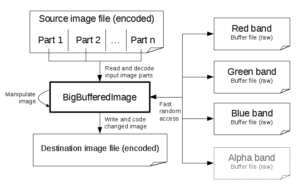The global landscape of office management software is undergoing one of the most significant transformations in decades. What was once the realm of spreadsheets, basic databases, and manual data entry is now being reshaped by the rapid integration of artificial intelligence. In 2025, digital office management is no longer simply about record-keeping; it is about prediction, automation, and creating a smarter, more responsive workplace.
From Data Storage to Intelligent Systems
Until recently, most digital office solutions were designed to centralize documents and streamline workflow. Cloud computing made these systems accessible from anywhere, improving collaboration and offering security in the event of data loss. But as organizations began to demand more than storage, the natural evolution was intelligence.
Modern AI-enabled platforms do more than host information: they interpret it. An invoice is no longer just archived—it is automatically analyzed, categorized, and cross-checked against inventory records. A client request is not simply logged—it is prioritized and, in some cases, answered by AI-driven assistants. These capabilities are saving thousands of work hours for businesses across industries.
JobcardSystems is among the companies that recognize the strategic importance of AI integration. As one of the first in Hungary to embed a GPT-based model into its products, the company has enabled users to receive instant answers to their questions and to edit content directly within the software, dramatically increasing both speed and efficiency.
Central Europe Steps Forward
This year has marked a particularly sharp rise in adoption in Central Europe, where governments are actively encouraging small and medium-sized enterprises (SMEs) to digitize. In Hungary, a series of funding programs launched in 2025 have put ERP and intelligent office software within reach of businesses that previously lacked the resources for large-scale digital projects. Analysts note that more than 60% of SMEs in the region are now planning to migrate to AI-enhanced systems within the next two years, compared to less than half just three years ago.
For these businesses, digital transformation is not simply a technological upgrade—it is a survival strategy. Competition, labor shortages, and rising costs are pressuring companies to do more with fewer resources. Intelligent office systems are emerging as a way to maintain efficiency without adding staff, allowing smaller firms to compete on equal footing with larger rivals.
The Legal Sector as a Case Study
Perhaps the most striking example of this transformation is in the legal sector. Traditionally one of the slowest to embrace technological change, law firms are now recognizing the enormous efficiency gains of intelligent office systems. AI-driven tools are being used to automatically draft legal documents, flag deadlines, and maintain detailed, searchable case records.
A mid-sized Budapest law firm recently reported that after introducing an AI-enabled management platform, the time spent on routine document preparation dropped by nearly 40%. Lawyers were able to reallocate those hours to client consultation and case strategy, significantly improving both client satisfaction and internal morale. What was once seen as an administrative burden is now becoming a competitive edge.
AI as a Strategic Partner
The deeper implication of these trends is that AI in digital office management is no longer viewed as a peripheral tool—it is becoming a strategic partner in everyday operations. Business leaders are beginning to expect their systems not just to process information, but to provide insights. AI can flag unusual spending patterns, highlight overdue invoices before they cause cash-flow issues, or even recommend scheduling adjustments based on employee workload.
This predictive capability transforms the role of office management software from passive record-keeping to active decision support. In fast-moving industries, the ability to anticipate problems before they arise could be the difference between growth and stagnation.
Challenges Ahead
Yet, the shift is not without challenges. Concerns about data privacy and security remain front and center, especially as sensitive financial or legal documents are processed by AI. There is also the question of workforce adaptation—employees need training not only to operate these new systems but also to trust them. Some resistance persists, particularly in sectors where personal expertise has traditionally been valued above technological assistance.
Nonetheless, most experts argue that these challenges are transitional. Just as cloud storage once raised fears but is now taken for granted, AI’s role in office management is expected to become standard practice within a few years.
The Bigger Picture
Looking ahead, the convergence of cloud infrastructure, big data analytics, and artificial intelligence points toward an era where digital office management will resemble a living ecosystem rather than a static tool. Systems will communicate with each other seamlessly, predicting business needs in real time and reducing human error to a minimum.
For companies making the leap in 2025, the benefits are already clear: faster workflows, stronger compliance, better customer service, and, perhaps most importantly, a workforce that can focus on meaningful tasks rather than repetitive paperwork. Those who delay may soon find themselves at a disadvantage in an economy where efficiency and agility are non-negotiable.
The message is unmistakable: digital office management is no longer an optional upgrade—it is the foundation of competitiveness in the AI era. And 2025 may well be remembered as the year when artificial intelligence truly became the backbone of the modern office.




